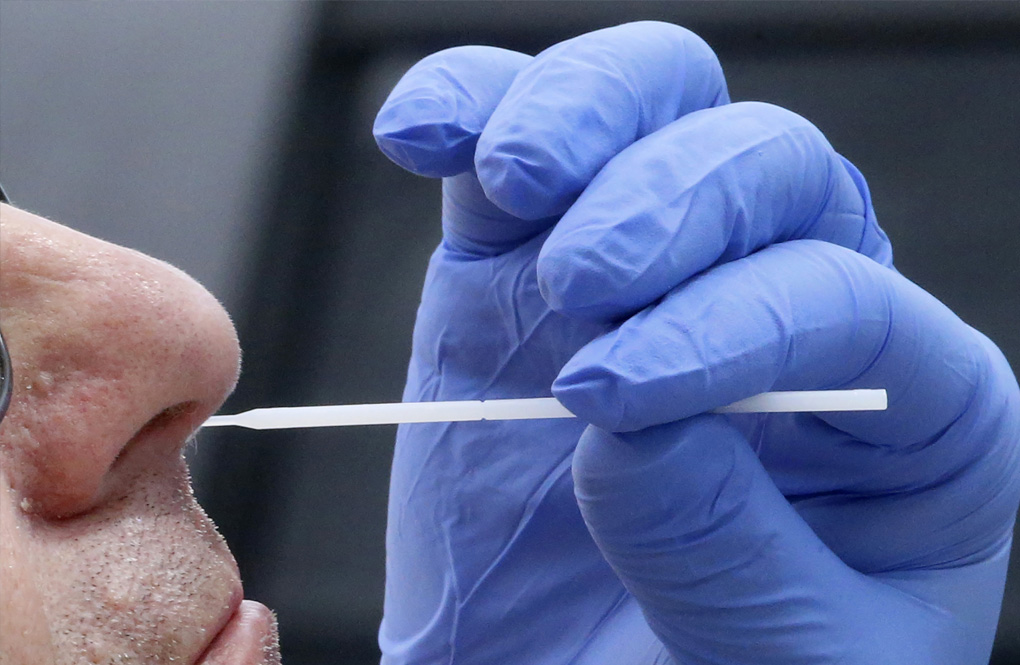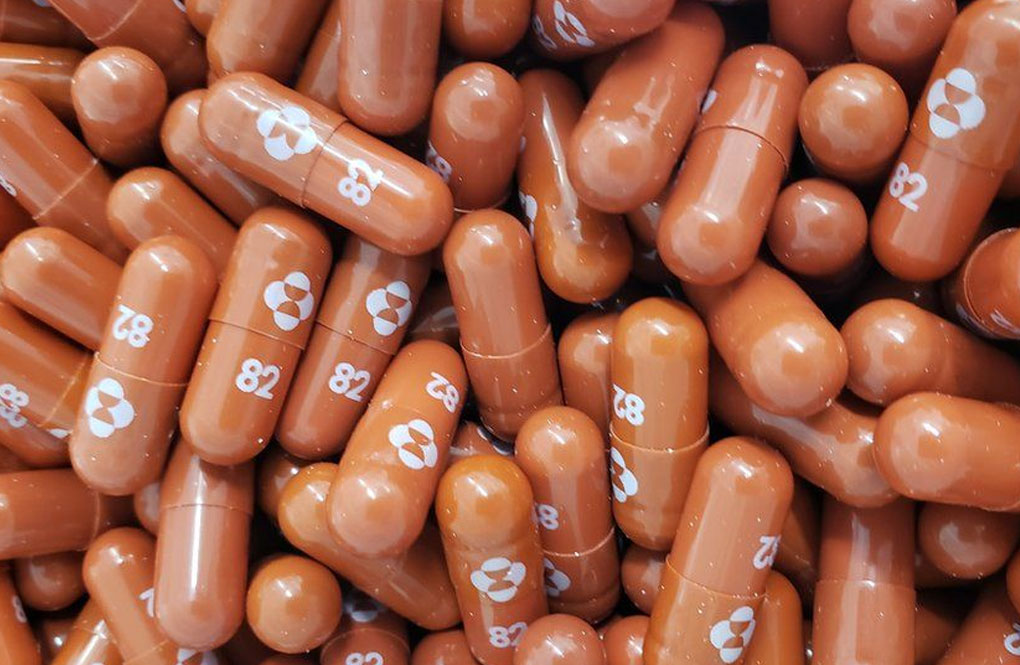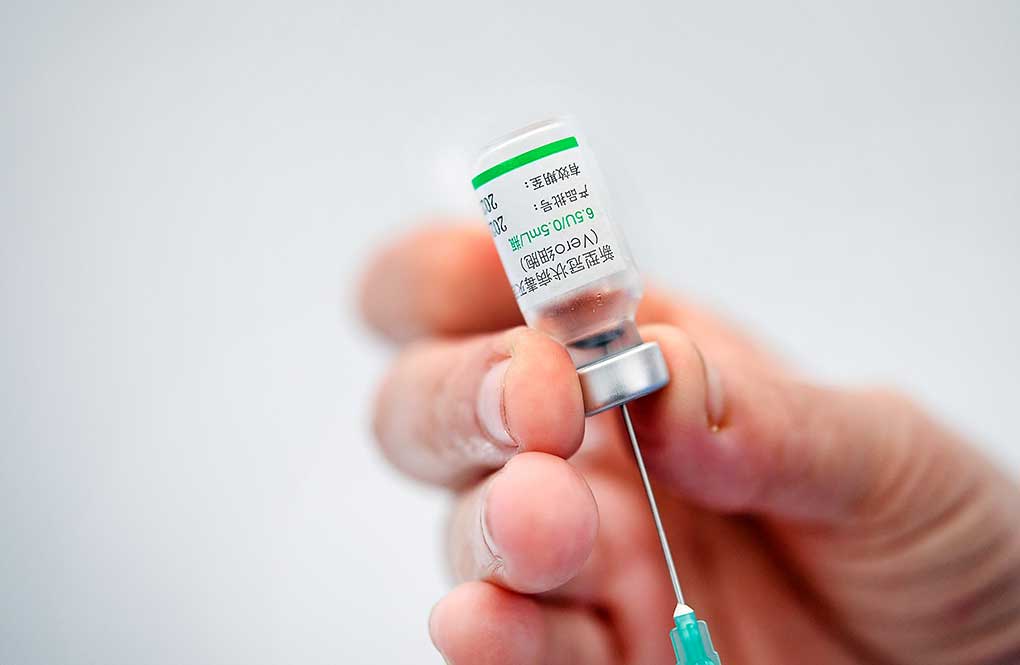Debate continues over the use of rapid antigen tests for those seeking to travel interstate with massive queues and long waits again being experienced at COVID-19 testing sites around the country.
Queensland Premier Annastacia Palaszczuk is reviewing the state’s quarantine and testing policies, with a decision on whether rapid antigen tests can replace some PCR requirements expected within the next day or so.
Ms Palaszczuk said the government was considering using rapid antigen tests instead of PCR tests for travellers’ day-five tests.
The premier made her announcement as hundreds of cars were still lined up at one north Brisbane testing site on Monday just ahead of it closing.
Of the people AAP spoke to, around half were from interstate and were required to take a PCR test. Car batteries were going flat in the line and people, including the elderly, were forced to wait for hours in hot vehicles.
The NSW health minister has accused Ms Palaszczuk of “effectively perverting the purposes of pathology testing” as travellers seeking COVID-19 tests clog up the already overwhelmed system.
Wait times in NSW have now blown out to the point the test results are no longer relevant, Brad Hazzard told Nine newspapers.
Queensland requires travellers have a negative PCR test within 72 hours of arrival.
“This rule is contributing to the breakdown of the biggest pathology system in the country,” he said.
“We are not getting the turnaround times we need.”
The ACT’s health minister said anecdotal evidence from testing teams pointed to half of all swabs being for people getting tested to travel.
ACT Health Minister Rachel Stephen-Smith said rapid antigen tests would be better suited for states wanting to test people ahead of travel.
“Rapid antigen tests aren’t particularly useful when we are targeting … (people) who have been exposed to the virus or who are symptomatic,” she said, noting positive tests would still need PCR confirmation.
“Where they are useful, particularly where they are taken over a number of days, is for that screening purpose.”
Federal Treasurer Josh Frydenberg backed the use of rapid antigen tests for interstate travel to help ease congestion at testing centres.
“Using that rapid antigen test ahead of interstate travel is a better approach than the more expensive and time consuming PCR test,” Mr Frydenberg told the ABC on Tuesday.
“I think that’s a sensible balance recognising that people want some level of surety about their health status before they travel.
“But at the same time they want to avoid the long queues and long waiting times coming with the PCR tests.”
Asked if the federal government would consider supplying free tests, as is happening in the UK, US and Canada, Mr Frydenberg said “we are looking at our options and also understand the states are as well”.
NSW has announced it will move to make the rapid tests free in the new year but details remain scarce as testing lines continue to balloon and blunders in returning results add to the mayhem.
St Vincent’s Hospital in Sydney admitted to two testing mishaps in as many days, revealing on Monday almost 1000 people were told they were COVID-19 negative when in fact their results hadn’t been returned yet.
It came a day after the hospital confirmed that more than 400 people who initially received a negative result on Christmas Day were notified on Boxing Day they had actually tested positive.
On Tuesday NSW recorded 6062 infections, down 172 on the day before. The state also reported one death.
Victoria saw a sharp uptick in COVID-19 infections, with 2738 cases and four deaths reported on Tuesday.
On Monday there were 842 cases in SA, 784 in Queensland, 189 in the ACT, 35 in Tasmania, 12 in the Northern Territory and one in Western Australia.
(AAP)













